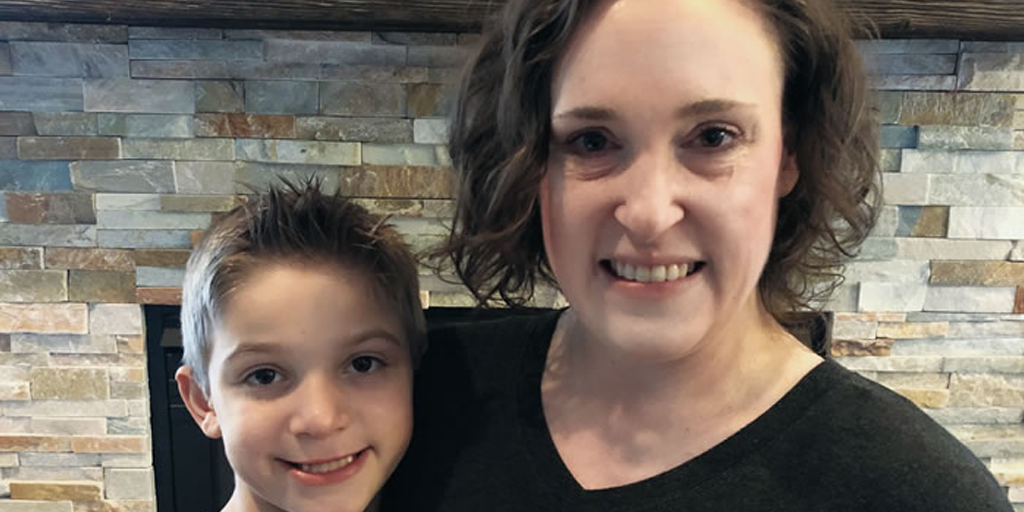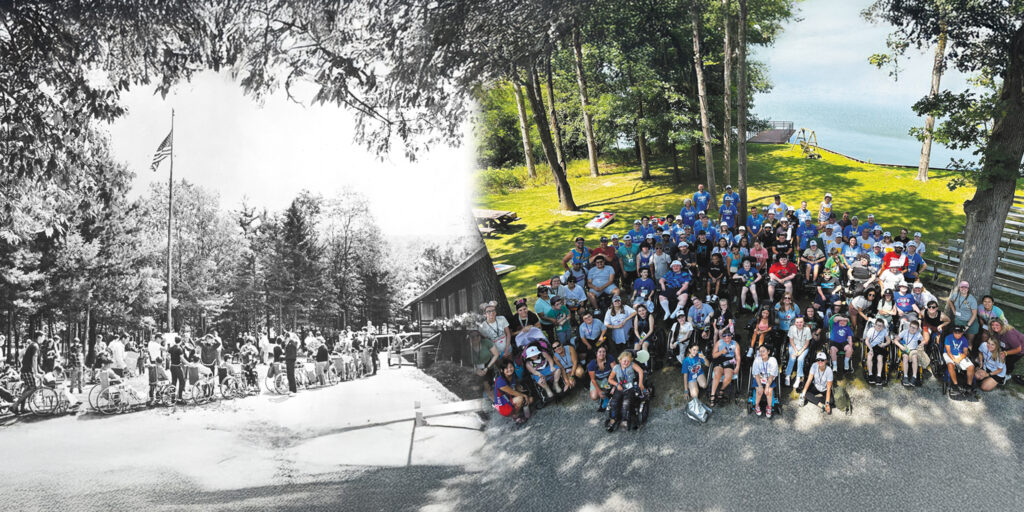
Claiming My Courage
By Jessica Stephan | Friday, November 19, 2021
There are few specific dates that stick in my memory. Sept. 21, 2016, is one of them. On that day, a phone call changed my family’s lives forever. After two long years of visits with specialists and countless tests, there was finally a diagnosis for my 4-year-old son: centronuclear myopathy. In addition, his diagnosis was my diagnosis; he had inherited the mutation from me.
I knew in the back of my mind the call was coming. My father had lived with this disease for more than 30 years, but the reality of the diagnosis still caught me off guard. I was devastated and distraught.
My whole life, I never once heard my father complain or make excuses. It was something I took for granted until I was faced with the same reality for my son, and I was nowhere near as brave. This diagnosis filled my mind with endless questions and overwhelming guilt.
We want to make sure that our son has the opportunity to live as normal a life as possible, without physical restrictions. The reality, though, is that he wears out faster than his peers. Trying to explain that to a 4-year-old was frustrating. As a parent, you do your best to stay positive. It’s exhausting and takes a toll on your patience in all other facets of your life.
I cried daily on my drive to work, had insomnia from my anxiety, and was tired all the time. I realized I had to face this head on with someone who could help me walk through the journey of this diagnosis with a different perspective. It took two therapists to find one who resonated with me, and things got worse initially, but my hard work paid off when some of my symptoms eased. I still work regularly to manage my anxiety with the tools I learned in therapy.
As he got older, my son started asking questions, and it was time to explain his “special muscles” to him. He is very much his grandfather — kind, smart, and courageous. He has never complained through the tests, casting, and wearing leg braces every day. He has more discipline for his self-directed daily physical therapy than people four times his age.
My son is going to be fine, and so am I. I got the help I needed to process the trauma of the diagnosis and find some peace with my family’s new reality. It was one of the hardest things I have ever been through, but I am better for it. My focus now is taking the best care of him and myself as possible. I want to be a role model — like my father was for me — of fortitude and grace in the face of a progressive disease.
Jessica Stephan, 41, lives in the Twin Cities of Minnesota with her husband and three children. She is an executive committee member for the Minnesota MDA Muscle Team and full-time Realtor®. You can find her at linkedin.com/in/jessicastephan.
Disclaimer: No content on this site should ever be used as a substitute for direct medical advice from your doctor or other qualified clinician.




